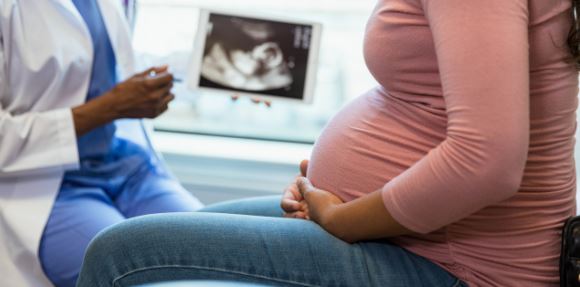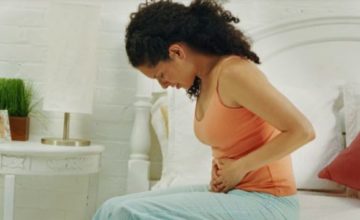
1. Abnormal chromosomes
When a miscarriage happens in the first 12 weeks, more than half the time it’s because of a problem with the baby’s chromosomes. Chromosomes contain the genes that determine your baby’s unique traits, such as hair and eye color. A baby can’t grow normally with the wrong number of chromosomes or with damaged ones.
An abnormality in a unborn baby’s chromosomes could cause one of several problems. Among the most common are:
- Blighted ovum (anembryonic pregnancy). No embryo develops.
- Molar pregnancy . Both sets of chromosomes come from the father, while none come from the mother. The placenta doesn’t grow normally, and the fetus doesn’t develop.
- Partial molar pregnancy. The father gives two sets of chromosomes in addition to the set from the mother. The embryo may start to develop but soon stops.
Several other chromosomal abnormalities can cause the loss of a pregnancy. These include trisomy 13, 18, 21 (Down syndrome), monosomy (Turner’s syndrome), and other sex chromosome issues.
Here are some other things to keep in mind about abnormal chromosomes:
- There’s no way to prevent chromosome problems from happening.
- As you get older, especially after age 35, your risk for chromosome problems specifically, and pregnancy loss in general, goes up.
Miscarriages from chromosome problems usually don’t happen again in future pregnancies.
2. Medical conditions
A pregnancy loss often results from a problem with the mother’s health. Some of these include:
- An infection such as cytomegalovirus or rubella
- Poorly controlled long-term diseases such as diabetes or high blood pressure
- Thyroid disease, lupus, and other autoimmune disorders
- Problems with your uterus or cervix, such as fibroids, an abnormally shaped uterus, or a cervix that opens and widens too early, called cervical insufficiency
- STD infections such as chlamydia, gonorrhea, syphilis, or HIV
- Blood clotting issues that block blood vessels carrying blood flow to the placenta
3. Lifestyle
Your habits as the mom-to-be can increase the risk of a pregnancy loss. Here are some habits that are dangerous for a developing baby:
- Smoking. Some studies show an increased risk to a pregnancy even if only the father smokes.
- Heavy drinking
- Using illegal drugs
4. Environmental hazards
In addition to secondhand smoke, certain substances in your environment at home or at work could put your pregnancy at risk. These include:
- Lead in old water pipes or paint in homes built before 1978
- Mercury released from broken thermometers or fluorescent light bulbs
- Solvents such as paint thinners, degreasers, and stain and varnish removers
- Pesticides for killing insects or rodents
- Arsenic found near waste sites or in some well water
Be sure to talk with your doctor about this. You may find your risks are not as great as you think.
5. Medications
Several prescription and over-the-counter medications can raise your chances of miscarriage and pregnancy loss, including:
- Misoprostol. It’s used for conditions such as peptic ulcers and rheumatoid arthritis
- Methotrexate, a medication for rheumatoid arthritis
- Retinoids. They’re used for skin conditions such as eczema and acne
- Non-steroidal anti-inflammatory drugs (NSAIDs) for pain and inflammation
6. Food poisoning
Several types of food poisoning during pregnancy can raise your risk for miscarriage or pregnancy loss.
- Listeriosis. Typically found in unpasteurized soft cheeses such as blue, Brie, or queso fresco, and raw or undercooked seafood
- Salmonella. Usually found in raw or undercooked eggs
- Toxoplasmosis. Most often caused by eating infected raw meat
Some food poisoning illnesses, including listeriosis and toxoplasmosis, can infect your unborn baby even if you don’t have symptoms yourself.
Follow your doctor’s guidelines about cooking and foods to stay away from while you’re pregnant.
What doesn’t cause miscarriage?
You may worry that certain activities or emotions might raise the risk to your pregnancy. But if your pregnancy isn’t considered high-risk, the following things are generally safe:
- Working
- Sitting or standing for reasonable amounts of time
- Exercise (talk with your doctor about what level of exercise is right for you)
- Having sex
- Air travel
- Eating spicy food
- Having an emotional shock or scare
- Stress or depression




